Organized by:
Missouri University of
Science & Technology
Systems Engineering Graduate Program
Smart Engineering Systems Laboratory
600 W. 14th St.
Rolla, MO 65409-0370
Phone: 573-341-6576
Email: complexsystems@mst.edu
| Systems of Systems Panel | Complex Systems of Healthcare Panel |
Cyber Physical Systems Panel
Panel Moderator:

|
Robert D. Rodriguez Speaking of the Future - Cyber Physical Systems |
Panel Discussion:
These panelists will address the current threat landscape, the digital paradigm - its opportunities and challenges to include the transition on the need for continued R&D and collaboration in the cyber physical systems through public private partnership initiatives. They will discuss leading change and the way ahead in Cyber and the evolving trends and the change agents who are embracing new models that are making a difference.
· Cyber System Design
· Biometrics
· Cyber Security
· Cyber Security Analytics
· Cyber Fractology
- Metadata integrity and analysis
- Semantic gateway protected digital safe zones
Biography:
Robert D. Rodriguez is the Chairman & Founder of the Security Innovation Network™ (SINET) www.security-innovation.org whose mission is to advance innovation and enable global collaboration between the public and private sectors to defeat cyber security threats. SINET serves as the catalyst that connects builders, buyers, researchers and investors in the cyber security domain. In his previous career Mr. Rodriguez served twenty-two years as a Special Agent with the United States Secret Service where he held a number of executive leadership positions within the Presidential Protection, Protective Intelligence, Inspection and Criminal Investigation Divisions.
SINET accelerates business opportunities for both small and large companies through their strategic advisory services, community-building activities and networking events. The annual IT Security Entrepreneurs’ Forum (ITSEF) Stanford University, SINET Showcase in Washington D.C. and the Innovation Summit at the University of Chicago are supported by the U.S. Department of Homeland Security (DHS) Science & Technology Directorate, public and private sponsorships and an elite steering committee. Mr. Rodriguez is the catalyst who leads change and builds global collaboration models that advance innovation and connects the ecosystem of the entrepreneur; academia, science, private industry, investment banking, government, system integration, intelligence community, policy, innovators, military, law enforcement and venture capital. He is known for building communities of interest and trust between disparate groups.
Mr. Rodriguez believes in mutually beneficial relationships that are top down-bottom up and trust based. He serves on the Board of Advisors for The Chertoff Group, as Director Emeritus for the San Francisco Kraft Fight Hunger Bowl, National Cyber Security Hall of Fame Board of Directors and is a certified graduate of the Federal Government’s Senior Executive Service Program. He is a recipient of the 2009 CSO Magazine Compass Award in recognition of outstanding leadership in the security field.
Panel Members:

|
David A. Cass |
|
Biography:
Mr. Cass is the Chief Information Security Officer for Elsevier. He leads an organization of experienced legal, risk and security professionals that provide data protection, privacy, security, and risk management guidance on a global basis for Elsevier.
David has extensive experience in IT security, risk assessment, risk management, business continuity and disaster recovery, developing security policies and procedures. He has played a key role in leading and building corporate risk & governance and information security organizations in the financial sector. As the Senior Director of Information Security Risk and Governance for Freddie Mac, David rebuilt the risk and governance function and developed a team to provide risk assessments, methodologies, tools, services, and training to improve the maturity and capabilities of Freddie Mac’s information security, risk and governance programs. Prior to that he was Vice President of Risk Management for JPMorgan Chase, and was responsible for providing an accurate assessment of the current risk management state, contributing to the future direction of risk management, continuity and disaster recovery capabilities for the organization.
David has a MSE from Penn Engineering and The Wharton School of Business. In June of 2012, he received his MBA from MIT.
|
Michael H. Nance |
Biography:
Michael Nance is the CISO and Cyber CTO for the Lockheed Martin Information Systems & Global Solutions (IS&GS) Civil Product line group. Mr. Nance was appointed to this position in November 2008. Mr. Nance also serves as the principal investigator and leader in the research and creation of advanced Complex Adaptive Systems (CAS) and Adaption Sciences for the entire corporation. IS&GS employs approximately 30,000 people worldwide and reported over $10 billion in sales in 2012. Celebrating its 100th year of operation, Lockheed Martin is the largest provider of information technology to the United States federal government.
Mr. Nance joined Lockheed Martin in 2003; prior to his current Senior Fellow position, Mr. Nance oversaw engineering teams in the classified design, implementation, and testing of trusted ground, airborne, and space-based systems. He has over three decades of experience in information technologies, and is an expert in computer network infrastructure and cyber space operations. Before joining Lockheed Martin, Mr. Nance was Vice President of Information Security in the banking sector. He also helped in the creation of NTech Group, an engineering consulting practice where he held the position of Chief Technology Officer. Mr. Nance’s government experience includes 14 years with the United States Air Force, working in telecommunications and cryptographic systems.
Mr. Nance is a Certified Information System Security Professional (CISSP) and an Information Systems Security Management and Architecture Professional (ISSMP / ISSAP). He received a Masters in Information Systems and a B.S. in Information Technology from the University of Phoenix. He is currently working on his Doctorate of Science (DSc) in Information Assurance from Capitol College. He is active in the information technology community, including with the InfraGard organization and various related councils. Additionally he is a Board member of several organizations and universities.
Systems of Systems Panel
Panel Moderator:

|
Judith Dahmann, PhD |
 Presentation |
|
Panel Discussion:
This panel will examine the research issues posed by complex enterprises and systems of systems and how these are being addressed by research by the SE Research Center (SERC), a DoD sponsored University Affiliated Research Center focused on systems engineering and exploratory development. The SERC has a major thrust in Enterprise Systems of Systems (ESoS) addressing methods, processes, and tools (MPTs) to address key challenges posed by complex ESoS [SERC 2014-2018 Technical Plan]:
1. Model: Develop MPTs that allow quick and insightful modeling of enterprises/SoS so that the effects of changes in policies, practices, components, interfaces, and technologies can be anticipated and understood in advance of their implementation
2. Acquire: Develop MPTs that allow insight into enterprise/SoS acquisition approaches in the face of significant uncertainty and change to minimize unintended consequences and unforeseen risks
3. Evolve: Develop MPTs that facilitate evolving and growing an enterprise/SoS, including insight into different architectural and integration approaches that facilitate evolution in the face of uncertainty and change in how an enterprise/SoS is employed, the technologies available to realize it, and the environment in which it exists
4. Verify: Develop MPTs that allow the properties of an enterprise/SoS to be anticipated, monitored and confirmed during development and evolution, including an enterprise/SoS which includes legacy
The panel will examine these issues. Panel members will discuss their ongoing research projects and how they are approaching these key areas.
Biography:
Dr. Judith Dahmann is a principal senior scientist in the MITRE Corporation Center for Advanced Systems Analysis and Acquisition. Dr. Dahmann is currently the technical director for Systems Analysis in the Office of the Director of Systems Engineering in the US DOD Office of the Under Secretary of Defense for Acquisition, Technology and Logistics. In this capacity, she is part of a team working to develop approaches to the acquisition, development and systems engineering of integrated user capabilities with a focus on early systems engineering, advanced systems engineering applications and systems of systems, where she is the technical lead for the office. She lead the development of the US DoD guide for systems engineering of systems of systems (SoS) and ongoing SoS engineering guidance, oversight and research. Prior to this, Dr. Dahmann was the Chief Scientist for the Defense Modeling and Simulation Office for the US Director of Defense Research and Engineering (1995-2000) where she led the development of the High Level Architecture, a general-purpose distributed software architecture for simulations, now an IEEE Standard (IEEE 1516). Dr. Dahmann holds a Bachelor’s Degree from Chatham College in Pittsburgh, PA (1972), spent a year as a special student at Dartmouth College (1971-72), a Master’s Degree from The University of Chicago (1973), and a Doctorate from Johns Hopkins University (1984).
Panel Members:
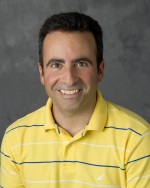
|
Dan DeLaurentis, PhD |
 Presentation |
Biography:
Daniel DeLaurentis is an Associate Professor in Purdue’s School of Aeronautics & Astronautics. He directs Purdue's Center for Integrated Systems in Aerospace (CISA) were research is conducted under grants from NASA, FAA, Navy, the DoD Systems Engineering Research Center UARC, and the Missile Defense Agency. His primary research interests are in the areas of problem formulation, modeling and robust system design and control methods for aerospace systems and systems-of-systems (SoS).
Research results have been widely disseminated in the technical literature including the Journal of the Astronautical Sciences, AIAA Journal of Aircraft, several Transportation Research journals, Engineering Optimization, and in various archival publications of the IEEE. Dr. DeLaurentis is an Associate Fellow of the American Institute of Aeronautics and Astronautics and served as Chairman of the AIAA’s Air Transportation Systems (ATS) Technical Committee from 2008-2010. He is also AIAA Deputy Strategic Technologies Coordinator since 2011. He is also Co-Chair of the System of Systems Technical Committee in the IEEE System, Man, and Cybernetics Community. Dr. DeLaurentis is Fellow of CERIAS (Purdue’s Center for Education and Research in Information Assurance and Security), 2012.
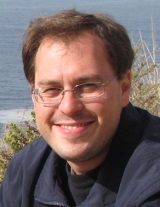
|
Michael Pennock |
 Presentation |
|
Biography:
Michael Pennock is an assistant professor in the School of Systems and Enterprises at the Stevens Institute of Technology and faculty member of the Center for Complex Systems and Enterprises. Michael’s research interests involve issues with the modeling and engineering of large-scale systems of systems that include both technical and human elements. He has also worked as a senior systems engineer in various lead technical roles for the Northrop Grumman Corporation. He holds a Ph.D. in Industrial Engineering from the Georgia Institute of Technology and Bachelor’s and Master’s degrees in Systems Engineering from the University of Virginia.
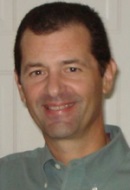
|
Mark Blackburn |
|
Biography:
Mark R. Blackburn, Ph.D. is an Associate Professor with Stevens Institute of Technology and principal at T-VEC Technologies, and KnowledgeBytes. Dr. Blackburn’s research focuses on methods, models, visualization and automated tools for reasoning about complex systems of systems. He is the Principal Investigator on a FAA NextGen project and Principal Investigator on a project for NAVAIR on Transforming Systems Engineering through Model-Based System Engineering. He has received research funding from the National Science Foundation.
Prior to joining Stevens, Dr. Blackburn worked in industry for more than 25 years. He has received over $10 million dollars from industry funding applied research on model-based, analysis, simulation, and test generation tools and methods. He has been the Principal Investigator to the National Institute of Standards and Technology on projects dating back to 2000 involving model-based tools and methods for verification and validation of security-related products and applications. Dr. Blackburn holds a Ph.D. from George Mason University, a M.S. in Mathematics (emphasis in C.S.) from Florida Atlantic University, and a B.S. in Mathematics (C.S. option) from Arizona State University.
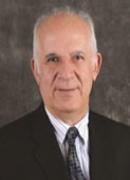
|
Cihan H. Dagli, PhD |
 Presentation |
|
Biography:
Dr. Dagli is a Professor of Systems Engineering and Engineering Management and also a Professor Computer and Electrical Engineering. He is the founder of Missouri S&T 's Systems Engineering Graduate Program. Dr. Dagli is also the Intelligent Systems Design Area Editor for the International Journal of General Systems and the director of the Smart Engineering Systems Lab (SESL) at the Missouri S&T. He is Senior Investigator in DoD Systems Engineering Research Center-URAC. Dr. Dagli is a fellow of International Council of Systems Engineering INCOSE 2008 and Institute of Industrial Engineers IIE 2009.
He received B.S. and M.S. degrees in Industrial Engineering from the Middle East Technical University and a Ph.D. Applied Operations Research in Large Scale Systems Design and Operation from the University of Birmingham, United Kingdom, where from 1976 to 1979 he was a British Council Fellow.
Complex Systems of Healthcare Panel
Panel Moderator:
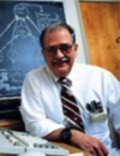
|
Walker H. Land, Jr. |
 Presentation |
|
Abstract:
The health care panel discussion objectives are twofold:
(1.) to focus the discussion on suggestions how to modify / upgrade the current health care system and
2.) to examine important possible futuristic health care problems.
The first objective is addressed by panel members who will speak to the following points: serious cost problem, serious complexity problem and finally the serious non-coordination problem.
The futuristic problems are associated with an aging global populations, how new “life forms “ might possibly affect humanity, and transitioning current defensive base medicine into outcome based approaches.
Biography:
Walker Haden Land, Jr. is a Research Professor in the Department of Bioengineering and the Dept. of Systems Science at Binghamton University. Land joined the faculty at Binghamton after a long career at IBM, and has publications in the fields of complex adaptive systems, statistical learning theory, bioinformatics, and cancer research.
Land worked at IBM for 29 years after being honorably discharged from the United States Air Force. He was responsible for research and development in statistical and stochastic processes, Bayesian inference, artificial intelligence, expert systems, coherent processing, neural networks, and guidance and location systems. Land also participated in development and evaluation of guidance systems for the Saturn and Apollo vehicles, as well as worked with post-Apollo space configurations, including the Space Shuttle. He made calculations for the original Apollo mission to circle the moon and come back to Earth. The initial conditions in his calculation included the then-nine planets as well as all of their then-known moons.
He spent 19 years performing classified military research that resulted in deployed military systems the details with cannot be discussed here.
In addition to his 32 years of basic and applied industrial research, he has 25 years of teaching and academic research.
He is on the editorial board of several international journals and has authored approximately 300 peer reviewed books, book chapters and journal articles / conference papers and edited proceedings.
With his background in creating code and years of work at companies like IBM, Land was instrumental in perfecting the weights and bias for codes that are capable of solving complex adaptive systems using machine intelligence and statistical learning theory.
Panel Members:
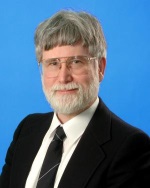
|
J. David Schaffer, Ph.D. |
|
Biography:
Dr. Schaffer recently retired as a Research Fellow after 25 years with Philips Research. He now advises graduate students and initiates research projects largely of his own choosing at Binghamton University in the domains of bioinformatics, evolving intelligent machines, and the diagnosis of Alzheimer’s disease. He believes that evolutionary computation is one of the most valuable technologies for mastering complexity. Dr Schaffer holds a B.S. in Aerospace Engineering from Notre Dame, M.S. in Systems Engineering from Widener University, and Ph.D. in Electrical Engineering from Vanderbilt. He has published some five dozen peer-reviewed papers, serves on the editorial board for the Evolutionary Computation Journal, and the steering committee for the Evolutionary Multi-objective Optimization conference series. He holds thirty-eight issued US patents. In 2012, he was named a Pioneer in Evolutionary Computation by the IEEE Computational Intelligence Society.
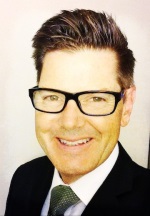
|
Michael Hultner PhD |
|
Biography:
Dr. Hultner promotes technical and business innovation within the Health and Life Sciences business area by guiding a portfolio of research and development initiatives balanced across core and strategic business growth objectives. These innovations come from the application of our core capabilities in Federal Health to transformative technologies in health information systems, big data analytics, and the integration of clinical and genetic data for decision making to deliver better outcomes at lower cost.
Michael is a Molecular Biologist by training who developed expertise in advanced information systems, software engineering, and program management through various roles in start-ups, small business, and through assignments at Lockheed Martin. As founder of a bioinformatics start-up he lead the development of novel databases of cellular and molecular structure; as a principal Engineer at Orincon he developed data fusion algorithms for defense and intelligence applications; and as program manager for Lockheed Martin he delivered advanced information fusion systems to DARPA, ONR, and the US Navy.
Michael holds a doctorate degree in Biomedical Sciences from the University of California, San Francisco and an undergraduate degree in Molecular Biology from University of California, San Diego.



